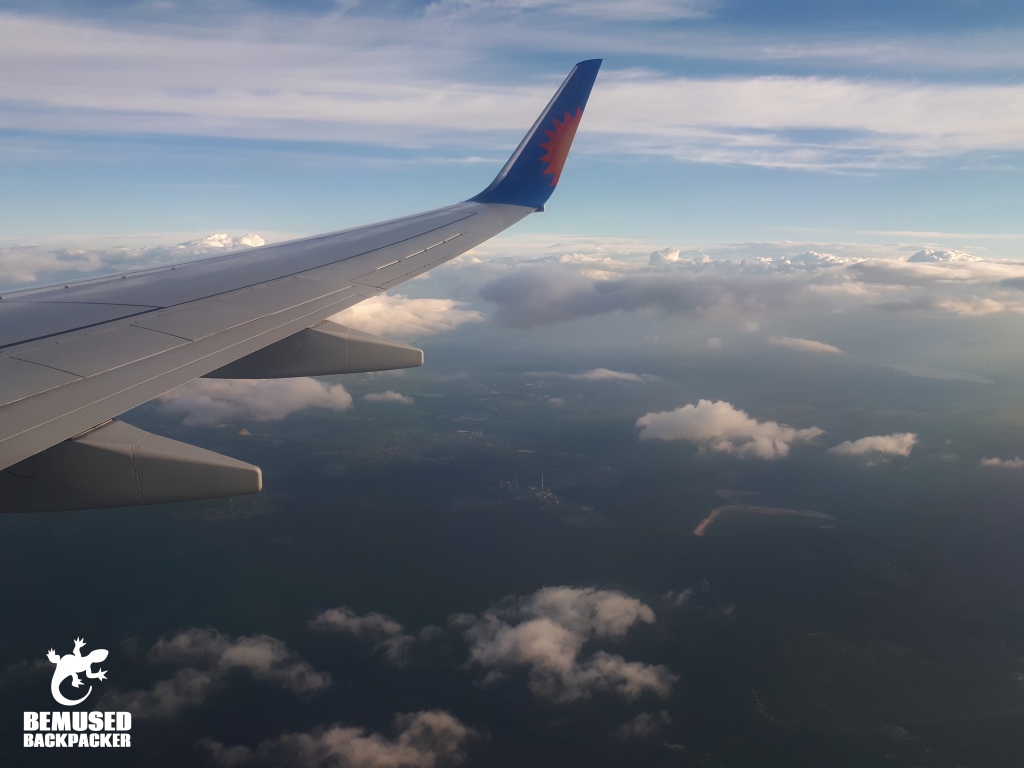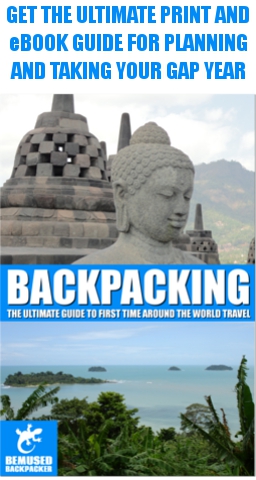
Covid19, the disease that is caused by the virus SARSCoV2 that originated in Wuhan China is one of the biggest public health emergencies that has emerged in recent years, and has had a significant impact on the travel industry and traveller confidence in the early months of 2020. But what is the truth about the coronavirus outbreak? What are the facts and what is just media scaremongering? Are travellers really at risk from coronavirus or is it just media hysteria? Here is everything you need to know about travelling safely during the Coronavirus Pandemic.
The Coronavirus pandemic has had a profound economic impact on the travel industry that is likely to be felt for many years after the outbreak itself has been contained. In just a month since a host of countries including the UK’s Foreign Commonwealth Office declared the whole of mainland China off limits to travel, the world has seen airlines cancelling routes to the country, cruise lines cancelling some routes and itineraries, entire cruise ships have been quarantined with passengers stranded on board, major tourist attractions have been closed and Chinese New Year celebrations and other major events cancelled, all of which are having a significant impact on the global economy. Everything from the tourism industry to the luxury product market and corporate world and everything in between is feeling the impact.
The Coronavirus pandemic is serious and does demand a serious response from the worlds governments, but media headlines and scaremongering about worst case scenarios does not help anyone. The fact is we have dealt with similar diseases before and will do so again, and everyone needs to keep calm and carry on.
But far more insidious than the economic impact, the coronavirus outbreak is also having a profoundly negative impact on the psyche of travellers themselves, with fear of travel running at extreme highs, trips being cancelled entirely and many travellers holding off on their plans until things have settled down.
Since this article was written many countries are closing off their borders to travellers for a set period, and airlines have all but cancelled most of their flights, essentially grounding a lot of travellers.
Any major outbreak or emergency will of course worry travellers, that is only natural, but how much of this is unnecessary hysteria? How much misinformation and scaremongering has been listened to as opposed to the genuine information from official professional sources? How much should travellers really be worried about being at risk of contracting the disease?
The Truth About The Risk Coronavirus Poses To Travellers.
Covid19 is the disease caused by SARS COV 2, a new strain of Coronavirus. Coronavirus’ are similar in many ways to other respiratory diseases such as influenza, more commonly known as the common variety flu, and the common cold. They are completely different diseases, but can be directly comparable in general severity, general fatality rate and in the ways they are treated and should be dealt with. Basically SARSCoV2 is a potentially serious new strain of a disease we are all very used to on a daily basis and should be taken seriously but is not something that most should be overly scared of.
On 11th March 2020 the World Health Organisation officially declared the COVID 19 outbreak as a Pandemic. A pandemic is classed as a worldwide spread of a new disease or strain of disease.
It is important to remember that the general risk to most travellers is still relatively low to moderate and thorough infection control measures are recommended but that is it. Basically do what you would do in a very serious flu season, be a little more aware of your hand washing and situational hygiene (be careful what you touch and wipe commonly touched surfaces like your phone a bit more often), but don’t be overly paranoid.
Most Western countries around the world including the NHS in the UK are very well equipped to deal with the virus and so far the people most at risk are those who are already vulnerable to virus’ like the flu such as the elderly or the immunocompromised. The most extreme at risk groups are generally already being taken care of in care settings, those who are over 50 and have comorbidities should ensure they take extra reasonable precautions, again just as they would in a severe flu season.
Despite this the 24 hour constant news cycle often misrepresent the facts – or in many cases get them completely wrong – to present a headline that will sell or get them clicks. The fear and paranoia around Covid19 is unprecedented.
Keeping Things In Perspective.
Covid19 is a serious disease, that much is not in doubt, but we deal with serious diseases all the time. Travellers have always travelled through pandemics, epidemics and outbreaks of far more serious diseases before and have never had to face the level of panic or restriction that they are facing now.
The fact of the matter is as serious as Covid19 can be, the absolute majority of travellers are at extremely low risk. Those who are at risk such as the elderly, those with severe or multiple comorbidities, a supressed immune system through illness or medication or other at risk group are the minority who are already vulnerable to a wide variety of other illnesses and diseases. It is right that if there are any travellers in those groups they take reasonable precautions to protect themselves, but that does not apply to the vast majority who are under 75 and otherwise healthy.
Just to keep things in perspective let’s look at the official numbers.
In comparison the CDC estimates that influenza, the common variety flu in layman’s terms, results in approximately 12,000 deaths a year in the USA alone, and according to Public Health England over 29,000 people a year in the UK die from respiratory diseases including influenza (the flu), pneumonia, bronchitis and asthma.
That is on average 290,000 to 650,000 deaths every year worldwide to influenza related respiratory illnesses.
We do not shut down the world for these diseases. We protect the vulnerable and let society carry on.
And again most of those deaths will be those at risk, the elderly, the very young and the immunocompromised, and will likely have other comorbidities leading to death.
It is right to be aware of the risks of the coronavirus outbreak and take reasonable precautions, but not to be worried or scared. The numbers really do put it in perspective.
How Do We Deal With Pandemics?
Every Western country has specific sets of guidelines based off the WHO’s Health Emergencies Programme, International Health Regulations 2005 and the Asia Pacific Strategy For Emerging Diseases And Public Health Emergencies, as well as the Pandemic Influenza Preparedness (PIP) Framework and many more besides.
Very basically speaking, these protocols serve as best practice guidelines alongside already established frameworks and protocols for emergency care, critical care and infection prevention control. These are enacted as society essentially carries on around it and in fact does not recommend travel bans, border closures or any measure that would generally curtail the normal running of society for very good reasons.
Covid19 is a novel disease, which means that it is new, but in terms of how it should be dealt with it can be directly compared to other respiratory diseases, diseases that we are very well prepared for, used to dealing with and established pandemic plans still apply to.
Please note that as of March 2020 the UK FCO issued an exceptional travel warning which meant that essentially most travellers were in absolute travel lockdown. This was due primarily to the risk of any country or area instituting travel restrictions without warning. This is not a nationally imposed travel ban because of COVID19 itself, which is something the WHO deems futile. This advice is still relevant once those international travel bans have been lifted.
Debunking The Myths Of Coronavirus.
Honestly the biggest threat to public health has been the mass spread of misinformation, myth and downright conspiracy theories that have been spreading over the internet and social media faster than the outbreak itself. The truth is this:
- The coronavirus is not a man made, end of the world supervirus.
- Unfortunately – as cool as it would be – this is not the start of the zombie apocalypse. Put your modified baseball bat away. For now at least.
- Eating meat will not give you Coronavirus, despite moronic propaganda from PETA.
- Hand dryers, UV lamps or hairdryers do not kill ‘coronavirus germs’.
- Washing your hands or face in saline, alcohol or bleach does not protect you from the coronavirus but may actually cause you harm. And yes, these are genuine questions people have asked. Put the bleach down!
- Thermal scanners at airports do not and cannot detect the disease, they detect your body temperature which will be raised if you are symptomatic of a number of diseases.
- You can’t get the disease from a package, so that cheap knock off branded bag you bought from the internet will be perfectly safe.
- You do not need to wash your cardboard package from Amazon, or your plastic bags from tesco. Just wash your hands regularly.
- I repeat, this is unfortunately not a zombie apocalypse. I know, I’m disappointed too.
- Vaccines for other diseases, such as influenza do not protect against COVID 19 coronavirus, this is a different virus.
- Cocaine nor any other controlled substance is not a cure nor a preventative medicine. And yes, people have asked this too.
- Antibiotics will not, and I repeat will not in any way, shape or form and will absolutely never protect you from coronavirus. Coronavirus is a virus, the clue is in the name, and antibiotics do not work against virus’.
- Face masks will not protect you from the coronavirus.
- And contrary to popular belief, ‘user37487’ on that random social media thread is not the sole expert and source of all knowledge on the coronavirus or any other medical issue for that matter. Get your knowledge from up to date, professional – and more importantly – qualified sources.
- And no, Googling a headline is not the same as a medical qualification. Stop it.
There are a lot more weird and wonderful ones I have heard but they appear to be the main ones.
Is It Safe To Travel With The Threat Of Covid19?
In very general terms and from a medical point of view, for the majority of travellers in the majority of destinations, yes it is. Risk assessment on a governmental level for worldwide COVID 19 transmission is conducted daily and is extremely robust, but a personal risk assessment based on your own individual and unique circumstances is down to you.
The fact remains that aking into account advisories for individual countries the personal risk level for the average traveller in the absolute majority of places is still low.
On a personal level however every traveller obviously has different individual risk factors that may put them in an at risk category, and only you can judge for yourself whether you personally consider travel too risky. If you have a compromised immune system or are at higher than average risk with comorbidities such as obesity, diabetes, advanced age or other risk factors, or your travel plans place you directly in an at risk zone, then those are factors that you have to consider as part of your own personal risk assessment. I’m not telling you to cancel a trip or not one way or the other, all I am saying is be fully informed before you make that decision.
Personal risk factors to consider:
- General health and immunisation status.
- Age. The very young and old are at increased risk of most respiratory diseases due to a decreased immune system.
- Pregnancy. Being pregnant can lower your body’s immune system and ability to fight off infection.
- Any pre existing conditions that have compromised or lowered your immune system or ability to fight infections.
- Lack of sleep, dehydration or a general lack of care for your body can lower your immune system.
- Previous visits to areas that have a high risk of infection (such as China before the travel ban).
- Close personal contact with any person who has likely visited an at risk area, especially if they are symptomatic.
- Potential visits to areas where the risk of COVID 19 is higher than average.
- Plans to visit any festival, event, conference or anywhere where there will be a large gathering of people. Any large crowds in small places always runs a slightly higher infection risk of any type of bug or virus.
- Working, or staying in any facility where there is a large concentration of people in close contact, including hostels, hotels, airports, planes, ferries or cruise ships, hospitals, schools, office buildings among many others.
This list is not comprehensive and it is important to remember that on their own each risk factor should not generally be enough to put you off travelling, but should be considered a part of a holistic personal risk assessment. The more factors you have, the more risk you have. The more that level of risk goes over your own personal risk comfort threshold (because everyone is different), then the more you should perhaps consider changing plans. If the risk is minimal or manageable, then that is something you can take into account too.
What About Delays And Restrictions?
Airlines are cancelling routes daily as countries close borders so travellers can expect to be severely impacted by this. Many travellers have had plans and bookings decimated for the next 6 months. If you are still travelling make sure that your flights are still going ahead and that you have taken into account the fact you may be stuck or quarantined in that country for weeks.
None of these measures are following the established best practice for pandemic response, and as things stand at the time of writing every country, airline and provider are essentially imposing their own rules on travellers. It is this level of uncertainty and imposition that is the greatest risk to most travellers at the moment.
Because of this uncertainty the only advice I can give if you do decide to travel is make sure your plans stay as flexible as possible and get some decent insurance after checking the terms and conditions very carefully as they may not cover you for changes due to a pandemic. Make sure you have back up plans in place and can manage financially if you end up being locked down or quarantined.
Obviously stay up to date with the changing news (and remember to use qualified, authoritative sources) as the situation may change on a day to day basis.
How Do I Protect Myself From Covid19 If I Do Travel?
It really isn’t as difficult as it may seem from the media. You don’t need to wear a mask all of the time or walk around in a full on Hazmat suit. The WHO and the NHS advise simple, easy, everyday guidelines.
SARSCoV2, like most respiratory diseases, are spread primarily through droplets of saliva or mucus, either through direct contact, an aerosol route if someone coughs or sneezes on you, or from handling surfaces or foods were these droplets have settled.
- Wash your hands regularly and thoroughly in warm soapy water.
- In between proper hand washes use alcohol hand gel frequently.
- Wipe down any public surfaces you may have prolonged contact with such as aeroplane trays with a disinfectant wipe.
- Maintain at least 3 feet from other people on average and more if they are actively coughing or sneezing. If they are not showing symptoms there is no need to be overly paranoid but it doesn’t do any harm to keep people at arms length if possible.
- Avoid touching your eyes, nose and mouth. This is how all those droplets from all the surfaces you touch get transferred to you!
- Use respiratory hygiene. What that means is if you do cough or sneeze make sure you use a tissue, dispose of it properly and immediately and then wash your hands thoroughly. Remember that old saying, catch it, bin it, kill it! It’s an old saying for good reason!
And in case this didn’t get through, the most important thing you can do to protect yourself is wash your hands! This is so important we actually had a practical exam on this technique during my nursing degree!
Do I need to wear a mask?
No. I know you’ve seen all the media reports of everyone wearing them and talks of them being made compulsory in some places which is leading to ridiculous panic buying leading to worldwide mask shortages, but just forget all that and stop it.
It is not necessary. Just to be very clear all Infection Prevention and Control best practice states they are to be used in a clinical setting with aseptic technique for a specific clinical task and then disposed of. They are not to be used by the general public and have never been advised for that situatrion.
The WHO’s Health Emergencies Programme states they may have a mechanistic benefit at best and there is no evidence to suggest they are useful in any pandemic for the vast majority of the healthy, asymptomatic public. If you are showing symptoms or are caring for someone with symptoms, then a mask may be a reasonable precaution.
Surgical masks are clinical PPE, designed for clinical staff during specific clinical tasks. They work very well in those specific circumstances when used correctly but are not recommended by medical professionals, the WHO, the CDC or Public Health England for mass public use. In fact because people don’t use them properly they may end up actually harbouring more germs and doing more harm than good.
Hand washing, disinfecting surfaces, and maintaining a reasonable social distance from people reduces your personal risk exponentially. The fact that most people do not practice these measures on a daily basis anyway is the reason we have viruses spread so readily and have an influenza season every year, so make sure you use these methods religiously.
This crisis will end. Travel will be possible again. The best thing to do for now is to keep to your plans if possible, postpone travel plans if restrictions become impossible to navigate, but still plan for later when this is all over. In most cases there is no need to cancel travel plans out of fear.
And that’s it, protecting yourself from COVID19 really nothing more than you would do to protect yourself from the flu or diarrhoea or any other basic, common illness. Yes the coronavirus outbreak is serious, and yes you should be aware of any potential risks to make an informed decision on travel, but you shouldn’t let that turn into fear or paranoia either.
For the vast majority of healthy travellers in most destinations, there is no reason to worry, The biggest problems are coming from the practicalities of airlines cancelling flights and governments being too heavy handed with travel warnings.
Calm head, rational mind, safe travels.
Did you enjoy this article? I would love to hear your thoughts in the comments section below or on my Facebook or Twitter pages and please feel free to share it with any or all of the social media buttons. If you want to get more great backpacking tips, advice and inspiration, please subscribe to updates via email in the box to your right.
Related Articles.
7 Easy Steps To Deal With Medical Emergencies On Your Gap Year.
Ask A Nurse. 10 Of Your Most Common Travel Health Questions Answered.
Common Backpacker Illnesses And Diseases.
The Essential Travel Health Checklist Before You Go On Your Gap Year.





The government should just ban travel. Now. If the ignorant still insist on going abroad, let them go but then keep them in quarantine for two weeks before they leave and don’t let them back for the forseeable future. There is such ignorance and selfishness out there.
I agree there is a lot of ignorance out there, as is evidenced by everyone thinking we should just ban all travel. That is not the way to go, but unfortunately that is the way things are going.
Everyone needs to calm down, Flu kills how many every year and no one even bats an eyelid about that. Yes I know this strain is worse but the level of panic is just so overblown.
Exactly, COVID 19 is serious I agree but this level of panic is just not necessary.
Have to say this is a brilliant, well researched and informative read. It’s refreshing to see a calm approach to it too unlike the mass media. It is serious yes but a calmer response is what is needed. The UK government is getting a lot of flack for their approach but it is actually really sensible. Some restrictions are necessary of course but people have lives to lead too, you can’t just shut an entire country down. How will immunity build up? I can foresee the EU crumbling not long after this. First Brexit and now two major EU countries, possibly more, shut down.
Thanks so much. I don’t disagree at all.
So given all the shutdowns lately would you still recommend people travel?
From a logistical perspective no I wouldn’t. All the evidence shows that border shutdowns and travel lockdowns have minimal impact on slowing a pandemic but they are still insisting on doing it, which is making travel pretty much untenable now for most people.
What evidence shows that banning travel isn’t a good idea? Not being argumentative just genuinely want to know?
No worries Julia, here is the governments guidelines on influenza modelling. A lot of the data is still relevant as we collect data on COVID19, and the benefits of closing borders and shutting down travel in most cases slows spread down but not enough to be anything more than negligible. https://assets.publishing.service.gov.uk/government/uploads/system/uploads/attachment_data/file/756738/SPI-M_modelling_summary_final.pdf
It’s so important to remember now that we have had SARS and MERS and Bird Flu and how many other major epidemics, and we got through all of them just fine without this panic. We’ll get through this one too.
We will indeed.
Great article, I just hope this all ends soon. The world has gone completely mad.
I can’t believe what is happening in the world now, and this is going to go on for months? WT actual F? I’m seriously terrified about what might happen.
Don’t be terrified Helen, it is serious yes but we will get through this. Odds are we will see a lot of things getting better over the next few months.
I’m so upset at the moment about all this, I was due to start my RTW in June and now that looks like it may not happen at all. And I’m sure it’s not just me! People all over will be having dreams shattered, businesses will be ruined. It’s just horrendous.
Aw Sarah I feel for you I really do! But this will pass I promise you, and you cam postpone your trip until then. This just means a couple more months to save up and travel longer later down the line!
I’ve been hearing about how many small bisnesses and blogs are being hit hard by this. Hope you are okay wherever you are. Love your blog and would hate to see it go.
Aw thanks Samantha, yeah I am perfectly safe and healthy thank you so much. And don’t worry this blog is still going strong and will be around for a long time yet!